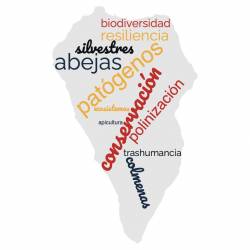Assessment of the health of managed and wild bees for their protection and the development of sustainable beekeeping
Wild and managed pollinators provide essential ecosystem services and economic and non-economic benefits that underpin ecosystem resilience and agricultural production, and thus the quality of life of people and society as a whole. The current widespread decline of pollinators is of global concern and there is an urgent need to characterise their biodiversity before it declines. Multiple anthropogenic pressures, which may interact with each other, threaten and drive the decline of managed and wild pollinators. Factors related to this decline include climate change, malnutrition due to lack of floral resources and habitat loss, the spread of exotic pathogens and the introduction of competitive invasive taxa (species and/or subspecies). The aim of this project is to advance in the knowledge of these last two factors in order to reconcile the development of a productive activity such as beekeeping with the protection of natural resources such as wild pollinators.
This project receives funding from the Ministerio de Ciencia e Innovación (AEI-Spanish State Research Agency) under grant agreement TED2021-131316B-I00.

- apisalus.txt
- Última modificación: 2023/01/30 19:01
- por pdelarua@um.es
